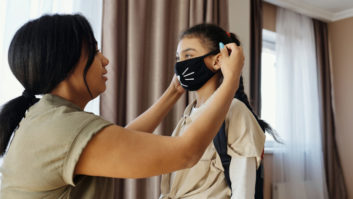The author is membership program director of the National Federation of Community Broadcasters. NFCB commentaries are featured regularly at www.radioworld.com.
Pew Research has issued its latest findings on the lead up to the U.S. election in November. The opinions of 11,000+ polled voters may give your radio station ideas on how to create new interest and conversation with your programming.
Pew’s figures revealed that, even amid major upheavals nationally, political affiliation since 2018 for thousands of Americans remains largely unchanged. There certainly have been shifts. The largest flights were among people of color and college-educated whites. However, whatever you think of media’s approaches to the news, early indications are that coverage is primarily seen as informational. Voters still feel as they do. Such is not a bad thing. In fact, this clarity can help us ask better questions to those in our medium.
[Read: Community Broadcaster: Why Look Away?]
What can radio’s role be in an election year? NFCB will explore that issue in a webinar Aug. 12, but it’s a subject all of us, commercial and noncommercial, are trying to figure out.
One possibility for your election coverage is to cover tension responsibly. Ariana Pekary just posted an announcement of her departure from MSNBC that may be instructive about what to avoid. In her view, pursing particular metrics incentivized offering a platform to fringe voices, stoking divisions, and cultivating an us-versus-them ethos. Chasing ratings, she writes, was “practically baked in to the editorial process — and those decisions affect news content every day. Likewise, it’s taboo to discuss how the ratings scheme distorts content, or it’s simply taken for granted, because everyone in the commercial broadcast news industry is doing the exact same thing.”

It is highly tempting to cover the worst aspects of any side of an issue. Indeed, conflict creates excitement and interest, but it may also normalize a distorted position to represent conservatives and liberals. As Pekary points out, commercial media has to change this. It can start with radio.
Another strategy for election coverage is seeking to tackle left-right splits in your community. The GroundTruth Project interviewed two academics on this subject. Reframing questions to avoid defensiveness; and talking with people about how they think, rather than what they think are among the ideas.
And finally, perhaps your radio station can use its website or airwaves to help answer voters’ questions and correct misunderstandings and assumptions they hear from friends or read on social media and text message exchanges. Make a little time for First Draft’s Infotheque 2020 virtual conference, which was held this week and posted its sessions on YouTube. You may discover ways to help your audience by addressing disinformation and, in turn, providing them assurances that you give back to your community.
Election day is less than three months away and listeners are hungry for your station to be the main dish in their information diet. We as radio can contribute with many innovative approaches and a commitment to do more.











